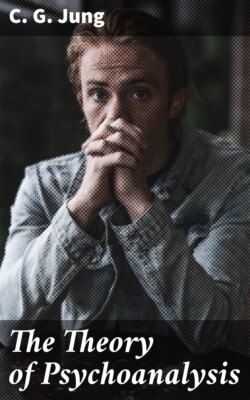Читать книгу The Theory of Psychoanalysis - C. G. Jung - Страница 15
На сайте Литреса книга снята с продажи.
Objections to the Sexual Hypothesis
ОглавлениеTable of Contents
As I said, the finding of precocious sexual phantasies, which seemed the source of the neurosis, forced Freud to the view of a highly developed sexuality in infancy. As you know, the reality of this observation has been contested by many, who maintain that crude error, that narrow-minded delusion, misled Freud and his whole school, alike in Europe and in America, so that the Freudians saw things that never existed. They regarded them as people in the grip of an intellectual epidemic. I have to admit that I possess no way of defending myself against criticism of this kind. The only thing I can do is to refer to my own work, asking thoughtful persons if they discover there any clear indications of madness. Moreover, I must maintain that science has no right to start with the idea that certain facts do not exist. At the most one can say: “This seems very improbable—we want still more proofs and more research.” This is also our reply to the objection: “It is impossible to discover anything trustworthy by the psychoanalytic method, as this method is practically absurd.” No one believed in Galileo’s telescope, and Columbus discovered America on a false hypothesis. The psychoanalytic method may be full of errors, but this should not prevent its use. Many chronological and medical observations have been made with inadequate instruments. We must regard the objections to the method as pretexts until our opponents come to grip with the facts. It is there a decision must be reached—not by wordy warfare.
Our opponents also call hysteria a psychogenic disease. We believe that we have discovered the etiological determinants of this disease and we present, without fear, the results of our investigation to open criticism. Whoever cannot accept our results should publish his own analyses of cases. So far as I know, that has never been done, at least not in European literature. Under these circumstances, critics have no right to deny our conclusions a priori. Our opponents have likewise cases of hysteria, and those cases are surely as psychogenic as our own. There is nothing to prevent their pointing out the psychological determinants. The method is not the real question. Our opponents content themselves with disputing and reviling our researches, but they do not point out any better way.
Many other critics are more careful and more just, and do admit that we have made many valuable observations, and that the associations of ideas given by the psychoanalytic method will very probably stand, but they maintain that our point of view is wrong. The alleged sexual phantasies of childhood, with which we are here chiefly concerned, must not be taken, they say, as real sexual functions, being obviously something quite different, since at the approach of puberty the characteristic peculiarities of sexuality are acquired.
This objection, being calmly and reasonably made, deserves to be taken seriously. Such objections must also have occurred to every one who has taken up analytic work, and there is reason enough for deep reflection.
